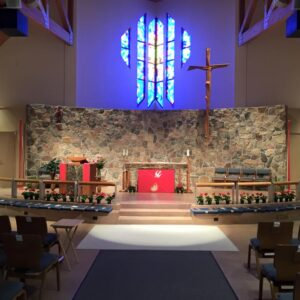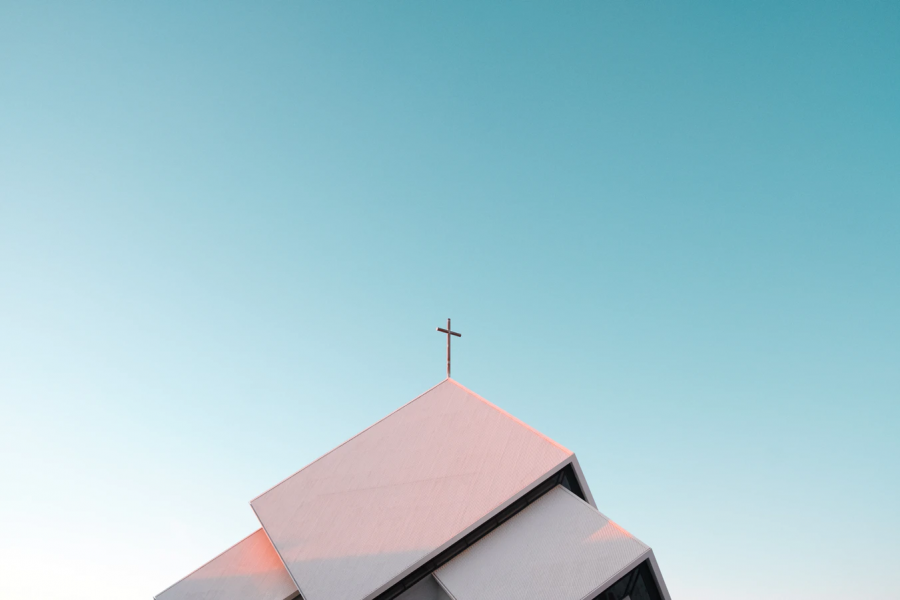The Changing Religious Landscape in America
Church membership has decreased by 23% since 2000.
May 22, 2021
“America itself is almost a religion,” says Catholic philosopher Micheal Novak.
Since the beginning of The United States, religion has been at the center of life, no matter what religion was practiced. But in the last fifty years, we have been taking a step back. Churches that used to be at the center of our communities are now adjusting to new American values.
When I reflect on the last year, the more the changes in our culture become prevalent in my mind. There was an insurrection in our capital, a new president was elected, and we have been fighting a deadly pandemic. Life has just changed so much.
When it is put that way, it seems as though the decrease in church membership is inevitable; there are just so many other issues of concern. A poll conducted by Gallup reports that only 47% of the population considered themselves members of a church in 2020, whereas in 2000 70% of the population had claimed membership.
Even Dakota Ridge High School’s God Squad sees the change in church memberships.
“We have a good consistent group, but it is smaller than it has been some years,” Jessica Koehler, Dakota Ridge High School English teacher, and advisor of the God Squad said.
For the past century, church has been an essential part of the American lifestyle — it was at the center of our lives. But now people are more involved in other things, like work, school, and extracurricular activities.
“We don’t have that culture anymore where everything revolves around church. Now everything revolves around everything else,” Reverand Brad Doty, senior pastor at St. Philip Lutheran Church said.
Pastor Doty researched the issue of decreasing church membership over a 4-month sabbatical in 2019. His insight on this issue is backed up by strong evidence and experience.
As a society, we have put church and religion on the back burner and changed the way our lives work. We don’t plan everything according to whatever church we attend. For example, up until 2002, Colorado didn’t sell alcohol on Sundays, but now you can buy it every day of the week. This goes along with a lot of other businesses as well; it used to be uncommon to be able to walk into most stores on a Sunday. Church just isn’t the main priority any longer.
This doesn’t necessarily mean that people don’t believe in a higher power or a God, but people are not getting involved in a church to express that. “Religion used to be a way of life and now it is more of a belief,” Pastor Doty said.
Another change in society that has affected church membership is politics. Religion has been closely connected to politics in the United States. Even though the church and the state are separate, religious beliefs often play into a person’s political beliefs, and this has created a stigma within our country.
However, society as a whole must be careful about this; we only really hear about the most extreme groups. Just like in politics, we hear a lot more about someone who is super liberal or super conservative than about someone who is in the middle ground.
Another change in our society is our ability to talk about our political and religious beliefs. “Politics have affected Christianity and faith today because we can’t talk about faith. We don’t have as many people who just throw out their belief about faith, it’s just more hidden,” Pastor Doty said.
All of these things affecting church membership in adults are just as prominent in teens. As teens, we seldom talk about religion, and our lives are packed with school and all of the extracurriculars in which we participate. So when it is Sunday morning, and people are flocking to churches, the last thing the average teen wants to do is crawl out of bed and into a church.
Most teens get involved in a church because their family wants them to. “Parents see the importance of faith for their kids … we lose our kids when they get confirmed,” Pastor Doty said.
As kids get older, become more independent, and get confirmed into their church, there is much less of a reason to go or get involved. They have done what their parents wanted them to, and that is that. Although it is important to note that there are still teens that enjoy getting involved in their faith, it is just becoming increasingly less common.
The God Squad here at Dakota Ridge High School includes teens that enjoy getting involved in church. Part of it for them is comfort, and relatability.
“It’s a really welcoming community… its a good place to process life together,” Koehler said.
For some teens, faith is something that plays a major role in their lives, it is something that will always be there for them, and that must bring a great deal of comfort into their lives. However, this is not for everyone.
“Youth want something that’s relevant for them. Youth are having a hard time seeing church as something that is relevant in their lives,” Pastor Doty said.
There are so many issues in the world right now that faith begins to move to the back of our brains. This has a major impact on the average teen. Church is the last thing on our minds, so for many, it just doesn’t hold much time or importance in our lives.
All of these worries may be causing the decrease in church memberships and that may end up having other effects on our communities as well.
Many churches push for people to have positive values, like helping others out or being accepting of all people. So when church becomes less important in our society, so do these values.
“I am worried that values are changing, but I don’t think people are suddenly adopting secular values either, or that the values they are adopting are much different than what I believe,” says Koehler.
Dakota Ridge High school senior Emma Matson agrees. “There is not going to be as tight of a connection with other people…people won’t have as many connections and relationships.”
Then there is the never-ending question of inclusivity within churches, we only really hear about the most extreme churches when it comes to this. There are extreme churches out there that often get a lot of public attention because they are not seen as inclusive enough or are seen as too inclusive, veering away from fundamental norms. This is an important issue to many who are involved in religion, and it is one that no one can quite agree on.
“We need to have churches that see an inclusive God that loves all people,” Pastor Doty said.
God Squad sees this issue and works to be more inclusive toward people outside of the Christian faith. “We even have people who aren’t Christians involved, because they feel safe and listened to,” Koehler said.
Since churches have always been at the center of our communities, they are often responsible for many social services within communities, and decreasing church membership inhibits this as well. When church memberships decrease so does funding for the church, because so much of their funding comes from member donations.
There is also a lack of volunteers willing to help carry out these social services, which leaves much of the weight on the shoulders of pastors and other staff members of a church. Although there are still people out there willing to volunteer at churches and do social good that way. Senior Emma Matson is one of those people.
“I love helping people and that is the place to do it…it gives me a purpose,” Matson said.
The future of many churches isn’t clear. Some are really trying to change and become more inviting and accepting towards others, while other churches are sticking with the values they have followed for hundreds of years. Society is evolving along with America’s religious landscape, change is happening all around us and churches feel the brunt of it.




